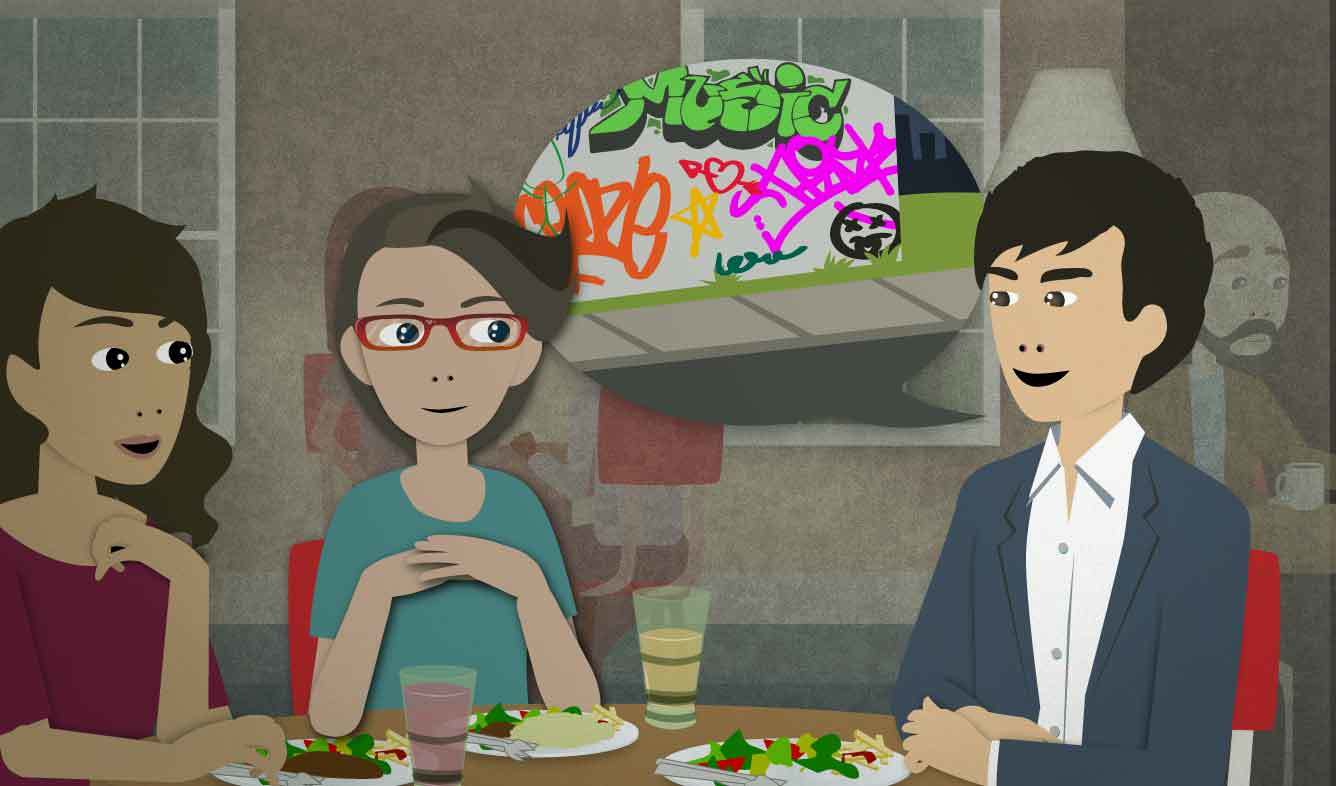“Back in the '80s, there was graffiti all over the place in the city.”
You're at dinner with some friends, discussing politics in your city. Your friend thinks that the mayor isn't doing a good job. You point out how much better some things are now than they used to be.
Back in the '80s, there was graffiti all over the place in the city.
Want Video and Sound? Follow us on YouTube

back (in a time period)
Use "back" to talk about a time period in the past:
Back in the '80s, there was graffiti all over the place in the city.
Back when I was in school, teachers would spank you with a paddlie if you misbehaved.
The time period is usually more than a year ago. It would be strange to use this to talk about something that happened yesterday or last week.
Adding this word makes the time period seem like it was a long time ago.
the (early/late/mid) ('80s/'90s/etc.)
You can name a recent decade by calling it "the '60s", "the '80s", "the '90s", and so on.
Some people call the decade starting in the year 2000 "the aughts". "Aught" is a way of saying "zero". The decade starting in 2010 is "the teens".
You can also specify if something was at the beginning, middle, or end of the decade:
I used to live there in the late '70s.
I think that came out in the mid '90s.
graffiti
"Graffiti" is drawings or paintings that are done on places like sidewalks, the sides of buildings, inside train cars, and in other public places.
(something) is all over the place
When something is spread out in many locations, you can say that it is "all over the place":
Her apartment is a pig sty. There are clothes and empty food containers all over the place.
Go to any town in the U.S., and you'll see fast food restaurants all over the place.
"All over the place" sounds messy and unorganized.
